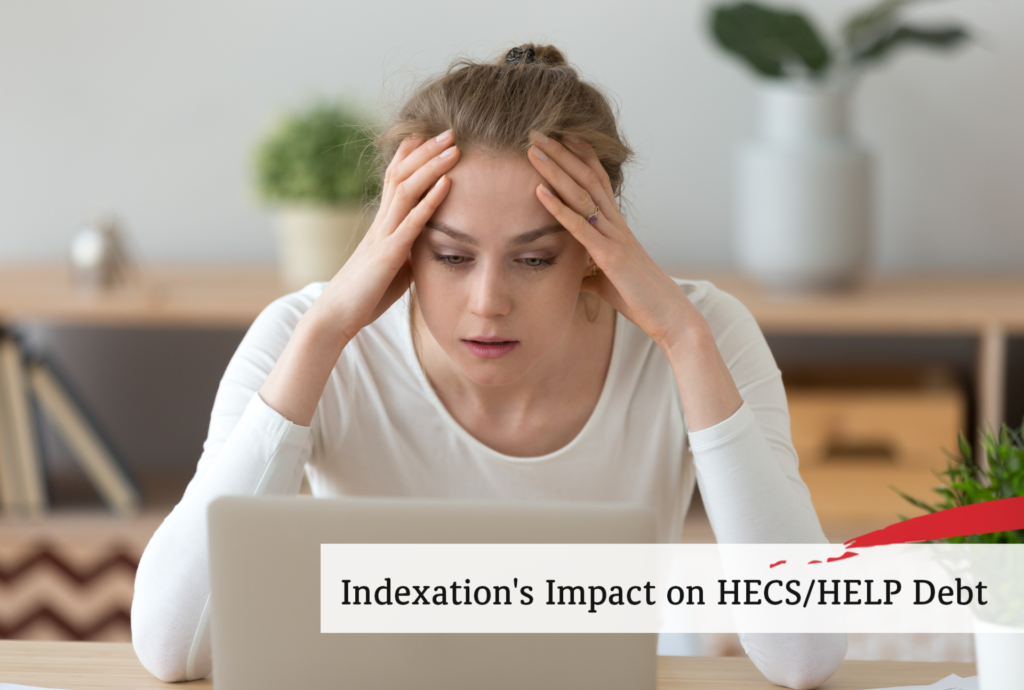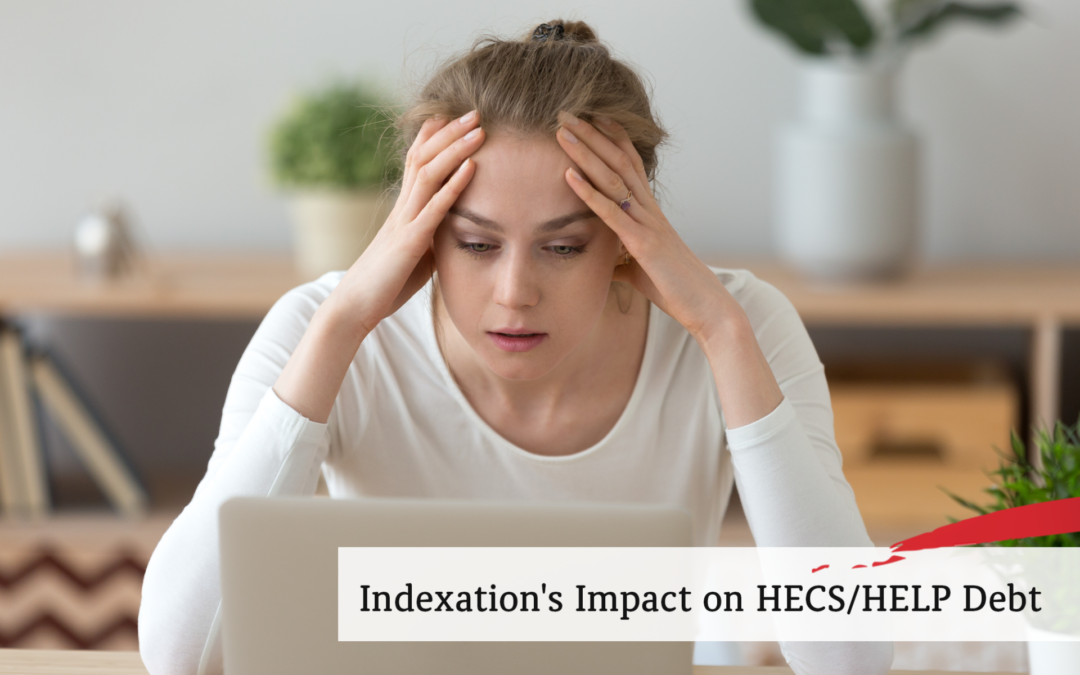Recently, the announcement that the indexation on HECS/HELP is going up to 7.1% from June 1st has caused confusion and concern for many. To provide some clarity on the matter, let’s delve deeper into what indexation is and how it affects your student loan debt.

Indexation refers to the adjustment of a price, wage, or value based on changes in another price or composite indicator of prices. It is often used to account for inflation, cost of living, or input prices over time or to account for different prices and costs in various geographic regions. In the case of HECS/HELP debt, indexation is applied annually on June 1st to account for inflation.
HECS/HELP indexation rate was around 4% last year, but due to inflation, this year’s rate is expected to be higher at 7.1%, which could increase outstanding student loan balances by hundreds or even thousands of dollars from June 1. However, it’s important to note that the indexation rate and the repayment rate are two separate things.
From June 1, most Australians with an outstanding student loan debt will see their balances shoot up by hundreds or even thousands of dollars if the indexation rate does come in at 7.1%. For example:
- a $10,000 loan balance would increase by $710
- a $25,000 loan balance would increase by $1775
- a $50,000 loan balance would increase by $3550
While HELP loans do not attract interest like credit card debt, they are pegged to inflation through indexation. This year, the indexation rate is predicted to be about 7%, which will add an additional $1500 in debt to an average $25,000 student loan. It’s essential to note that the indexation rate applied to the loan balance and the repayment rate are two separate things. Repayment rates are determined by income, with lower-income earners starting at 1% and higher-income earners up to 10%.
Here is what the HELP debt indexation rates have been over the past few years.
- 2023 – 7.1%
- 2022 – 3.9%
- 2021 – 0.6%
- 2020 – 1.8%
- 2019 – 1.8%
There are a few crucial points to keep in mind:
- If you earn less than $48,361 per year, there is no minimum repayment required. Also, if you continue to earn less than this threshold, you may never have to repay your debt. Additionally, the debt doesn’t affect your estate, so if you pass away, you don’t have to pay back the remainder of the debt.
- Whether or not you should pay off your HECS/HELP debt before June 1st depends on your individual financial situation and goals. While it may be worth considering for some, it’s crucial to prioritise paying off personal loans, credit cards, and building an emergency fund first. Consider your purchasing goals, such as buying a home, before prioritising your student loan debt.
- Make any payment well before the end of May to ensure it’s processed in time to avoid the indexation charge.
You can check your current HECS/HELP debt balance by logging into the Tax Office’s online service on MyGov, and the simplest way to make an early repayment is through BPay.
Understanding how indexation affects your student loan debt is crucial, especially with the upcoming increase in the HECS/HELP indexation rate from 4% to 7.1% on June 1st. It’s essential to keep in mind that the indexation rate and the repayment rate are two separate things, and repayment rates are determined by income. While paying off your debt before June 1st may be a consideration, it’s essential to prioritise your personal financial goals and seek financial advice if necessary.

